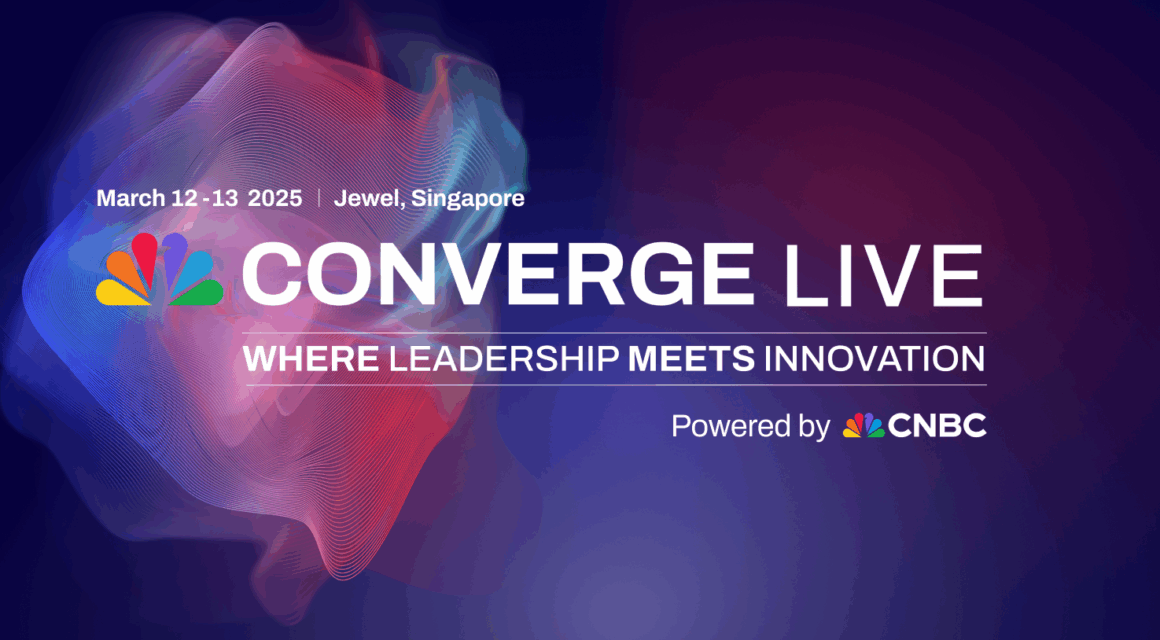WHEN: Today, Tuesday, October 28, 2025
WHERE: CNBC’s “Squawk Box”
Following is the unofficial transcript of a CNBC exclusive interview with Microsoft Co-Founder Bill Gates on CNBC’s “Squawk Box” (M-F, 6AM-9AM ET) today, Tuesday, October 28. Following are links to video on CNBC.com: https://www.cnbc.com/video/2025/10/28/bill-gates-ai-is-the-biggest-technical-thing-ever-in-my-lifetime.html and https://www.cnbc.com/video/2025/10/28/bill-gates-on-his-new-climate-message-theres-enough-innovation-to-avoid-super-bad-outcomes.html.
All references must be sourced to CNBC.
PART I
ANDREW ROSS SORKIN: Now, I spoke to Bill Gates in an exclusive TV interview, and I asked him to explain what he hopes people take away from this new message.
BILL GATES: Climate is a super important problem. There’s enough innovation here to avoid super bad outcomes. We won’t achieve our best goal, the 1.5 or even the two degrees. And as we go about trying to minimize that, we have to frame it in terms of overall human welfare, not just everything should be solely for climate.
SORKIN: How much of your own view is a function of just contextually what’s happening in the world versus what I think you’ve thought for a long time about the climate?
GATES: Well, if the aid budgets to poor countries were continuing to go up, the way they did over the last 25 years, then the trade-offs between climate action and saving children’s lives wouldn’t be as acute as it is now that these budgets are going down and going down quite a bit. And so, the plea here is to say, okay, let’s take that very limited money and not have some partitioned off for particular causes. Let’s measure it all in terms of the human welfare, how do, how do you help those countries?
SORKIN: You were a huge supporter of the Paris Climate Accord at the time. And I wonder now when you look back, given that you’re changing sort of the metric with which you used, do you say to yourself that the Paris Climate Accord and its goals were misplaced?
GATES: No, not at all. That was a key milestone because the countries of the world said, hey, this is a mutual problem. The temperature rise, the entire world will experience a temperature rise from the emissions from all these countries. So, getting countries to commit was very, very important. The one thing about that accord that, you know, turned out not to be realistic, was the ambitious goal of staying to 1.5 degrees. We won’t be able to do that. Even if you took all the money away from health, you wouldn’t be able to do that. So now — you know, the question is, okay, what temperature level are we going to end up at? Very important to minimize that, but not at the expense of everything else.
SORKIN: Okay. But in the context of not at the expense of everything else. So many businesses, companies, including Microsoft, made pledges around being net zero, trying to get, in some cases negative net zero, meaning going back and paying for their carbon production from earlier. Was that a mistake now?
GATES: Not at all.
SORKIN: So, that’s not the message that you’re trying to suggest?
GATES: No, not at all.
SORKIN: Okay.
GATES: I mean, the — why have we been able to lower the future emissions, it’s because companies like Microsoft and many others focused on this initiative, and it’s very important that those companies help advance these new technologies by being the early customers for things like nuclear fission, fusion, clean cement — they’re driving the prices down. And that’s the magic thing. When you get the clean stuff to be cheaper than the dirty stuff, then you can take that whole area of emissions and saying, “Okay, just normal market economics works there.”
SORKIN: When the climate activists who have been very supportive of what you’ve done and you’ve been very supportive of what they’ve done, read this, and if Greta — if Greta Thunberg is reading this and saying to herself, my goodness, he seems like he is reversing himself, what would you tell her?
GATES: I’d say, wasn’t the goal here to improve human lives? And shouldn’t we, in our awareness of how little generosity there is to help measure, you know, should we get them a measles vaccine, or should we do some climate related activity? And if we could take, if we stop funding all vaccines and that, you know, saved you 0.1 degree, would that be a smart trade off? That’s the kind of question we have to ask. So, I’m a climate activist, but I’m also a child survival activist.
SORKIN: Okay. So, what do you think is going to be the critique of this? There are going to be people who are going to say that you are — you are changing the goalposts because of this political climate as a way to placate President Trump, who has not been on the side of some of the net zero and obviously, the Paris Climate Accord and things like that.
GATES: Well, I’m glad that some of the provisions that promoted new climate technologies got preserved. I was disappointed that a lot of that was taken away. But the provisions supporting nuclear and geothermal, some of those were maintained. The U.S. has pulled back. And that’s a huge disappointment. We really need all the countries working together on this, just like we need them to be generous on their aid budget. If you think climate is the only problem and it’s apocalyptic, or if you think climate is not a problem at all, my memo will make no sense to you. You’ll be like, oh, no, it should all be climate, or you’ll be like, why are you even still talking about this climate thing? Why, why do you invest billions of your money into these companies? The middle position that climate is super important but has to be considered in terms of overall human welfare, I didn’t pick that position because it’s a, you know, everybody agrees with it. It’s, I think, intellectually, the right answer.
PART II
SORKIN: New this morning right here on “Squawk Box,” Microsoft’s co-founder Bill Gates publishing a new essay on climate. It’s aimed at — to deliver a message ahead of COP 30, and he’s suggesting that the climate community should shift its strategy from temperature and emission targets to the impact on human lives. An exclusive interview on that topic. I also asked him if he is worried about whether we are in an AI bubble. Here’s what he had to say.
BILL GATES: We need to define bubble. If what we mean is like tulips in the Netherlands that they went, she looked back and said, “What the heck? There was nothing there. Those were just tulips.” No, that’s not where we are. If you mean it’s like the Internet bubble, where in the end, something very profound happened. The world was very different. Some companies succeeded, but a lot of the companies were kind of me to, fell behind burning capital companies. Absolutely. There are a ton of these investments that will be dead ends.
SORKIN: And you look at all the investments that are being made today by some of the big tech companies. Some companies were not making money on AI yet, but are making massive commitments to chip makers and data centers and say this math makes sense.
GATES: The AI is the biggest technical thing ever in my lifetime. I mean, it is so profound and therefore its influence is hard to overstate and the economic value. This is basically intelligence, you know, where you can get medical advice. You can get a tutor or you can get somebody to help you to assign drugs. So, the value is extremely high, just like creating the Internet ended up being in that very, very valuable. But you have a frenzy, and you know, some of these companies will be glad they spent all this money. Some of them, you know, they’ll commit to data centers that whose electricity is too expensive, you know that it could be done overseas, or they’ll buy a generation of chips and, you know, they won’t have captured all their value before the next one comes along. But, you know, if you want to be a tech company, you don’t get to say no. You know, let’s check out of this race.
SORKIN: What do you think the public appetite for this is ultimately going to be? And I asked because I think there’s concerns about two things that are happening right now. One is energy costs. So, there’s a whole bunch of places where people want to put data centers. And, you know, the community says, no, we don’t want this because we don’t want to have to spend more money for power to power our own homes. At the same time, they’re worried that if they actually are successful, we’ll also lose their jobs.
GATES: We need to put things like TerraPower nuclear reactors in places where it’s very clear that you’re not raising the residents’ electricity bills because that’s being put in there. Historically, nuclear was done in a way that the utility bore a lot of that liability. That — that business model won’t get repeated. So, we need to make sure to pick locations where the economics and the political acceptance is very, very strong. We have — we don’t have permission to drive up people’s electricity costs. You know, in terms of the jobs, this is going to take some period of time. But yes, although it hasn’t been seen in large numbers over the next several years, there will be some impact on the job market. Nowadays, when you say that some people are like, oh, how can you, you know, you know, say that isn’t that going to slow the U.S. down in this race. But it’s only honest for people to speak frankly about the fact this will have a big effect on the job market.
SORKIN: And, of course, Gates is a longtime capitalist. So, I talked to him about the industrial policy coming from the White House, including the U.S. taking stakes in rare earth and chip companies. Here’s what he had to say.
GATES: Government operates best when it’s kind of predictable. That is, when you know what, you know, what are the tariffs going to be for the next 20 years? Because when you build a factory, so the government shouldn’t be changing its policy, you know, every year or every day, because, you know, predictability is a very, very important thing. Understanding when the company’s helping nascent technology, is it doing that for the good of the country and, you know, not and treating companies equally or will it want to own part of those companies and not and if somebody has better technology, they’ll favor the company they own part of. And we need to understand what those policies are. Yes, I think there’s a rush of people to say, wow, you know, maybe that’s how to, you know, get to the front of the line for government money. But the rules of the game we’re playing are pretty unclear right now.
For more information contact:
Stephanie Hirlemann
CNBC
m: 201.397.2838








